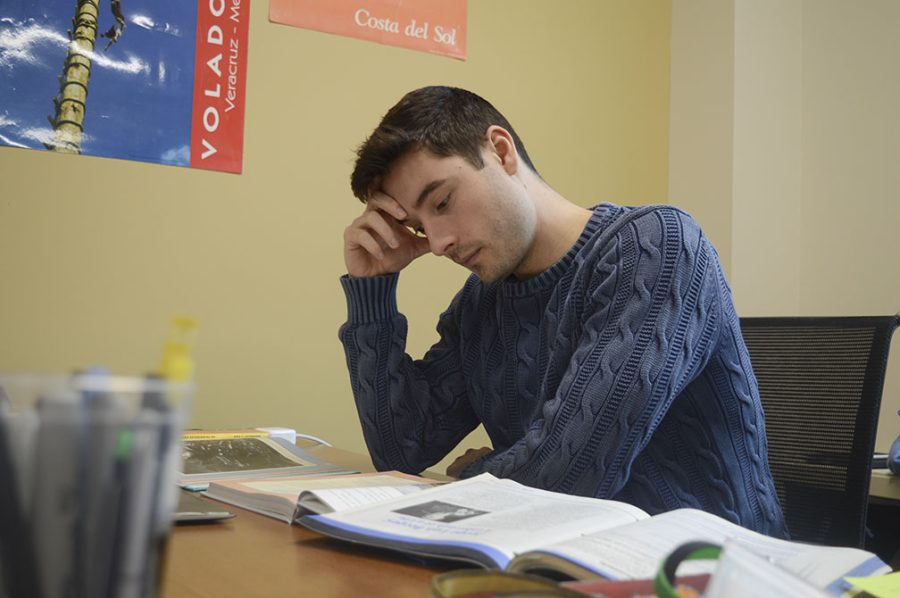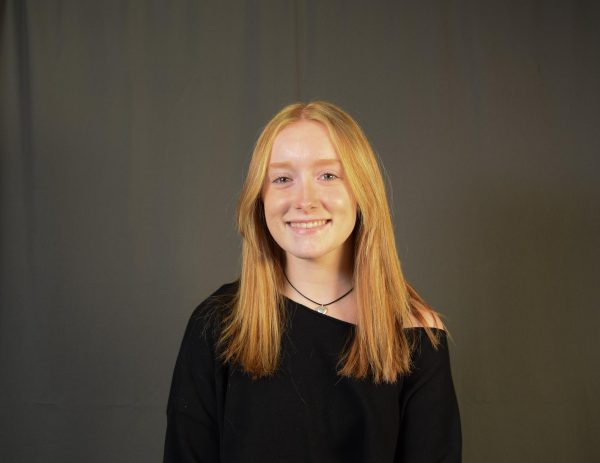Semester stressors: When second semester comes around, finding a way to combat burnout is essential
March 3, 2023
As the second semester falls upon NHS students, a looming sense of fatigue fills the air. Lurking in the melancholic hallways, a familiar feeling of uneasiness washes over high school students once again.
It’s a predictable feeling that occurs every winter. Teenagers and adults all across the world experience some kind of burnout, whether that be in an academic, social, or emotional sense. Though this time of year often brings emotions such as joy and happiness, with it also comes a lingering feeling of dread. Consequently, a students’ mental health can feel like it’s being targeted at this time of year.
A host of explanations exist for this overall feeling of gloominess, and for senior Camryn Schott, The symptoms all began just a few short years ago.
“I’d say COVID definitely made it worse. The lack of motivation started sophomore year, which is when I think the subjects start to get harder. Freshman year is still new and interesting, but after that, it gets difficult,” Schott said.
Teachers play a key role in keeping students engaged in class, and Stephanie Gilbert, a psychology teacher, has seen that when the teacher is encouraging, it translates to the students feeling more comfortable and optimistic.
“I think if I stay upbeat, and I stay enthusiastic, that rubs off. I do a celebration for my seniors, I bring in food and decorations and we all celebrate the fact that they’re graduating. So having something fun to look forward to and keeping the enthusiasm that you have for the content is key,” Gilbert said.
Mental health researchers say the results of burnout often first begin to show at school, and students’ minds start to struggle to find the energy to put forth effort. A teens mind can start to grow tired of the constant day to day responsibilities.
“Burnout definitely affects mental health, confidence, and self esteem,” Schott said. “If you’re doing horrible in school, you’re usually going to feel horrible about yourself, too. It will just overall take a toll on you.”
While students from every grade experience some form of their own mental stresses, seniors often feel like they are faced with more pressure than their younger peers.
“On top of everything going on, seniors also have their futures to worry about. I have to balance school, work, and manage to have a social life all while trying to focus on college,” Schott said.
For students stuck in this tedious cycle, no one specific strategy works for everyone. To find what worked for her, Schott believes that sticking to something comfortable can be key.
“To get out of the burnout feeling, I try to make a schedule or a routine. If I don’t, assignments keep piling up and it feels like I’ll never get out,” Schott said.
Along with students, teachers often face this discouraging energy as well. While the general effects on mental health often look similar between the two groups, teachers are experiencing different types of stressors. Gilbert says she tries to focus on the positive aspects of her job throughout the year to help combat burnout.
“If teachers have something interesting going on in class that students really want to learn about, it sort of counteracts the ‘blah’ feeling students might be experiencing. Just trying to keep things interesting kind of helps balance it out,” Gilbert said.
Like teachers, students always have the opportunity to work themselves out of this funk. Guidance counselor Craig Spinner suggests thinking of this experience from a different perspective.
“The story that we tell ourselves in our head is usually worse than the actual situation itself,” Spinner said.
The rate for educator burnout is higher than it has been in years. Guidance counselor, Cosette Fehribach, believes that outside of school, teachers’ personal stresses are often overlooked as educators are expected to balance their personal life with their academic responsibilities to their students.
“Part of the reason for educator burnout is COVID and virtual learning, part of it is changing state expectations for what the curriculum needs to be,” Fehribach said. “A bigger part of it is how to be both a teacher in the sense of academic involvement, but also a supportive adult in a more social-emotional environment.”
Fehribach says that a senior’s perspective on high school is most likely going to be vastly different from that of a freshman’s perspective. While seniors may be worrying about college, Fehribach adds that freshmen are still in the early stages of growing academically and socially.
“For my seniors, it is typically ‘I’m tired of this specific setting, and taking classes that are not relevant to the field in which I’m going to pursue,’” Fehribach said. “Whereas freshman burnout, I feel is a little more social-emotional.”
This feeling is new to most freshmen, as the transition from middle school to high school can sometimes be a rude awakening. It can be a lot to handle, but freshman Jackson Allen sees the silver lining.
“I cope with it by doing small tasks, like dishes or laundry,” Allen said, “It makes me feel like I’m getting something done.”




